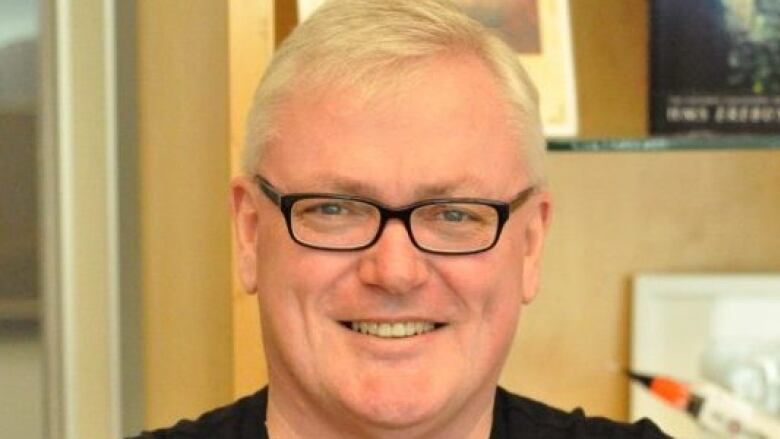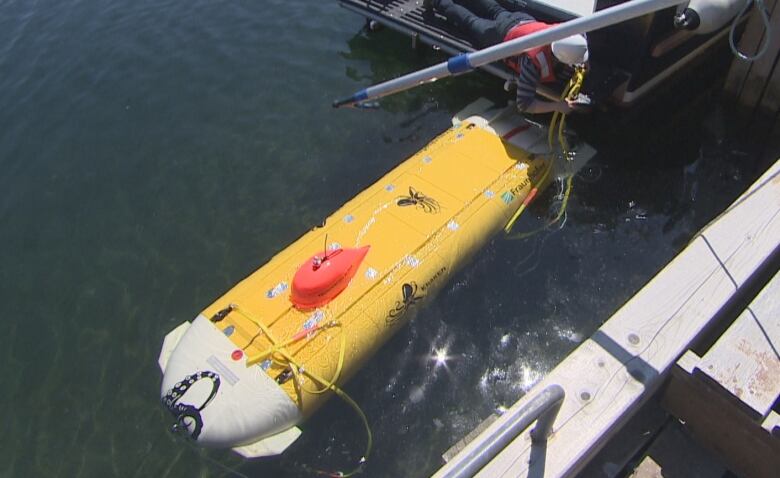Everything's coming up Kraken, as St. John's company picks up rare U.S. military contract
Kraken Robotics Inc. signs new deal to integrate its sensor on underwater vehicle

Innovation is the name of the game for Kraken Robotics, and it's paying off as just this month the company signed a rare contract with the United States navy on top of another U.S. deal.
"We're pretty pumped," said president and CEO Karl Kenny.
"It's a fairly big deal. Only a few of these are awarded annually to all U.S. allies, and we're quite pleased that we're part of this."
'Next-generation sensor'
Roughly a year ago, Kenny said one of the military's program offices approached them to talk about an FCT, a foreign comparative test. It lets the U.S. Department of Defence choose technologies it could use from allies.

"If it performs well, the U.S. navy often fast-tracks these under procurement, and starts to buy equipment from the foreign allies," Kenny told CBC Radio's On The Go.
With the $900,000 contract, Kraken could have its sonar sensors on the navy's manned portable underwater robot.
We all remember aerial drones going back 10, 15, 20 years ago. The underwater drone is in the same space right now.- Karl Kenny
"We're building a next generation sensor.We're taking our current sonar sensor, and under the funding from the U.S. navy we're going to make it smaller, lighter, and hopefully a little bit cheaper," said Kenny.
He said the navy has about 150 of these drones and counting, "so it could be a very significant opportunity for Kraken."
"We all remember aerial drones going back 10, 15, 20 years ago. The underwater drone is in the same space right now."
Booming business
Kenny said Kraken got a big contract with a large U.S. company the week before theU.S. military deal. That one is for justover $2 million to supply a piece of equipment called a Katfish, a high-speed underwater robot used to map the seabed in ultra-high-definition resolution.
"It's cutting-edge technology," he said."They'll be using our equipment to do high-speed surveys at extremely high resolution for their clients, which I think are primarily military at this point."

Kraken also opened a new 4,000-square-foot facility in Halifax early this month, and recently moved into a 2,200-square-foot space in St. John's as well.
"What we're trying to do is take a completely vertically integrated approach to the market and make most of the equipment that we sell," he said, noting the company also has two offices in Germany.
"We're firing at all cylinders," Kenny said,and doing so from Atlantic Canada making products at home and selling them to the rest of the world, in a market trending in the right direction.
'Maybe a little bit crazy'
"We came into this about seven years ago now and people thought we were maybe a little bit crazy, and maybe we were, but here we are today and we're doing very, very well," he said.
The company now hasalmost 85 people, with doubled revenues year over year. Kenny said they're expecting to hear back on aproposal to the ocean supercluster initiative soon that, if accepted, will mean more hires.
With all of that, what happened to Kraken's involvement in the search for the Malaysia Airlines Flight MH370 that disappeared into the Indian Ocean in 2014 with 239 people on board?
Obviously, they didn't find it.But, Kenny said, the company that led the search is now a shareholder and strategic alliance partner, delivering more than $10 million worth of product to them.
With files from On The Go












_(720p).jpg)


 OFFICIAL HD MUSIC VIDEO.jpg)
.jpg)



























































































